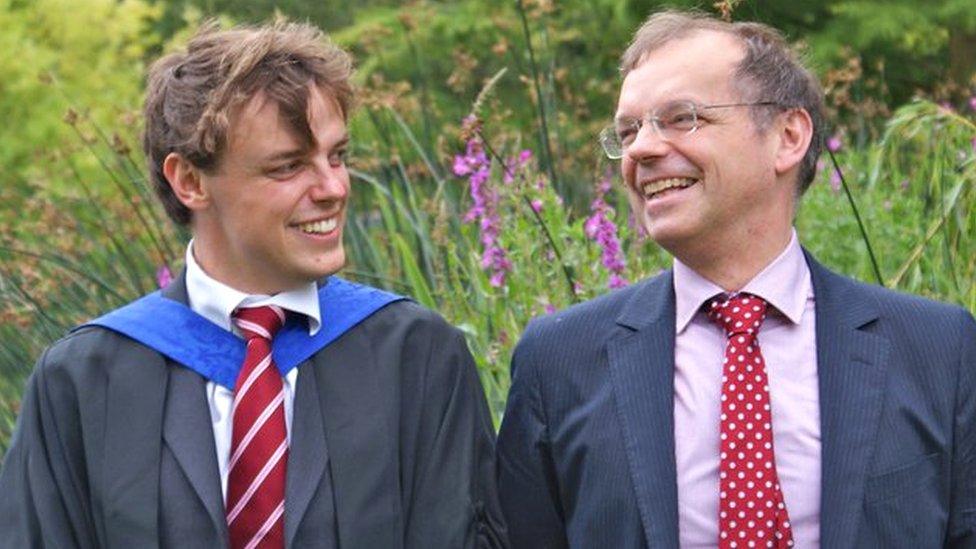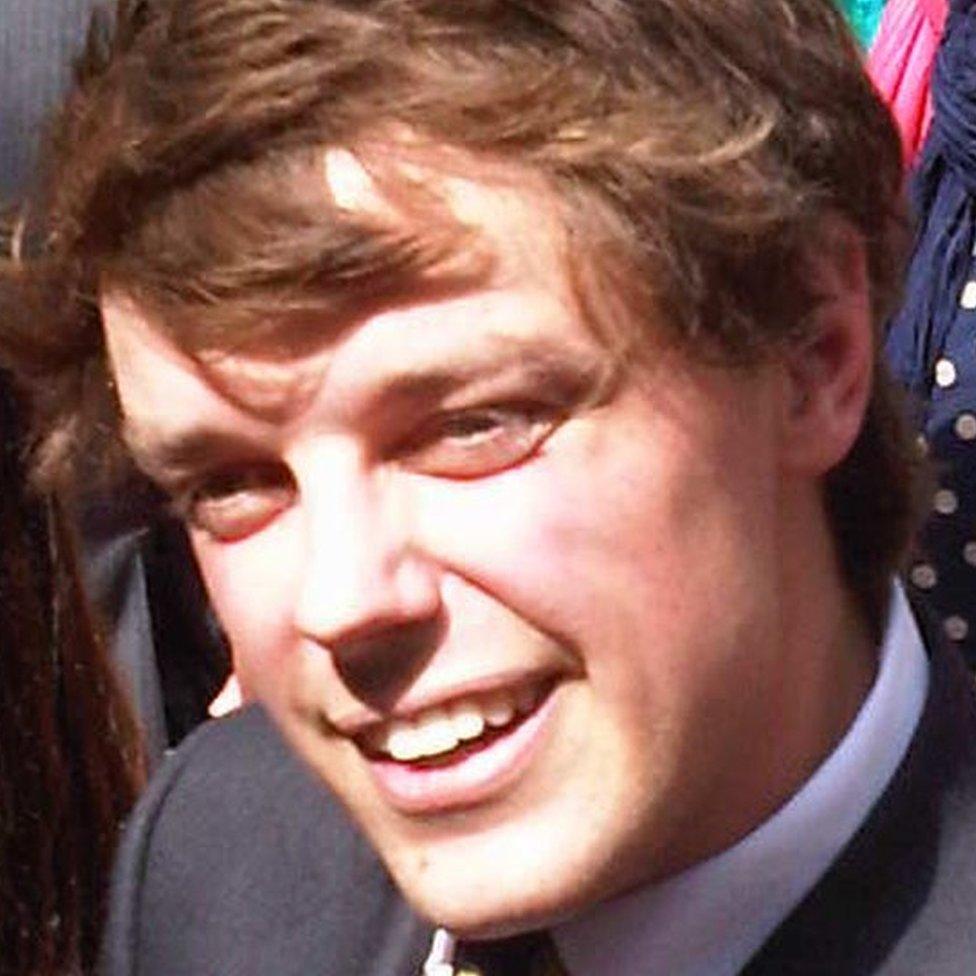My son survived a helicopter crash - but the trauma led to his death
- Published

Michael Bull says he was proud of son Sam who tried to save the life of a passenger on a submerged helicopter
Sam Bull was one of the first of the survivors to escape from a submerged helicopter after it crashed into the North Sea off Shetland.
He helped with the life rafts, and tried to resuscitate one of his fellow passengers - although those efforts would prove to be in vain.
The man he tried to save was one of four people who lost their lives on the day of the crash in August 2013.
Sam was haunted by the harrowing events. Four years later, at the age of 28, he took his own life after suffering post-traumatic stress disorder (PTSD).
As the findings of a fatal accident inquiry are published, Sam's father Michael spoke to BBC Scotland News in the hope of raising awareness of the impact that trauma can have on people.
The link between the accident and Sam's death only became public knowledge during the evidence.
Derek Pyle, the sheriff principal leading the inquiry, said there had been "another victim" in addition to the four people who died on the day of the crash.
"His death was plainly directly caused by the accident," he said.
Michael Bull says the crash left his son with a mental injury
Sam, a chemist, was one of 18 people on board the Super Puma, which was heading to Sumburgh from a North Sea drilling platform.
He managed to escape after the helicopter hit the water on its approach, before overturning and filling with water.
Michael Bull, 62, said his son had been one of the first people out of the helicopter. He helped deploy the life rafts, and was involved in giving CPR.
'Proud of him'
He helped with the attempts to save a fellow passenger who died from heart failure.
"I can be proud of him, that he kept his head, trying to resuscitate that passenger," said Michael.
But he explained: "That came back to haunt him.
"That was one of his nightmares, reliving that, flashbacks - in effect he was seeing that passenger die in front of him."
Sam phoned his family, who live in Tunbridge Wells, Kent, after he was airlifted ashore.

The crash happened off Shetland in August 2013
"I have a very vivid memory of him calling to say he had been airlifted out the sea, but was not physically hurt," said Michael.
Survivors were brought back to Lerwick on a Coastguard rescue helicopter.
Sam stood out in the photographs which were taken on their arrival, as he was the only person not in a survival suit.
Michael said they had asked him why he had not been wearing one.
"He was aware there would be probably be photographers," he said.
"He didn't think he looked good in the survival suit - he wanted to look cooler."
Michael said his son had not been physically hurt in the crash.
'It does change people'
"But there was clearly an injury, a big change in him, a mental injury, which ultimately led to his death.
"The inquest did confirm that it was the helicopter crash which caused the PTSD, which led to his suicidal thoughts, and eventually to his death.
"For many people it's very difficult to understand that something like that can have that amount of impact - it really does change people."
Sam had initially showed few outward signs of the emotional impact the crash had on him.

The family has raised money in Sam's memory for mental health charities

"I guess for a few months we did not notice anything," his father said.
"Then over the course of the next few years he was clearly different."
He decided to change careers and started studying law. Michael said he had since read that this was a sign of PTSD - trying to distract yourself with something different.
As time went on, Sam was "not in a great place" and started to distance himself.
'It's a big issue'
Michael said he had seemed "alright" when the family went abroad on holiday in 2017.
When they arrived back at Heathrow Airport, Michael asked Sam if he was going to get a taxi home, and he said yes.
"That was the last time I saw him."
Michael said that since his son's death he and the family - Sam's mother Amanda, sister Kate and brother Jacob - have been involved in fundraising for mental health charities, such as Calm (Campaign Against Living Miserably), external.
"My daughter said everyone has a man - a son, boyfriend, husband, father.
"There are about 7,000 suicides in the UK a year, and about three-quarters are men - it's a big issue."

If you or someone you know needs support for issues about emotional distress, these organisations may be able to help.